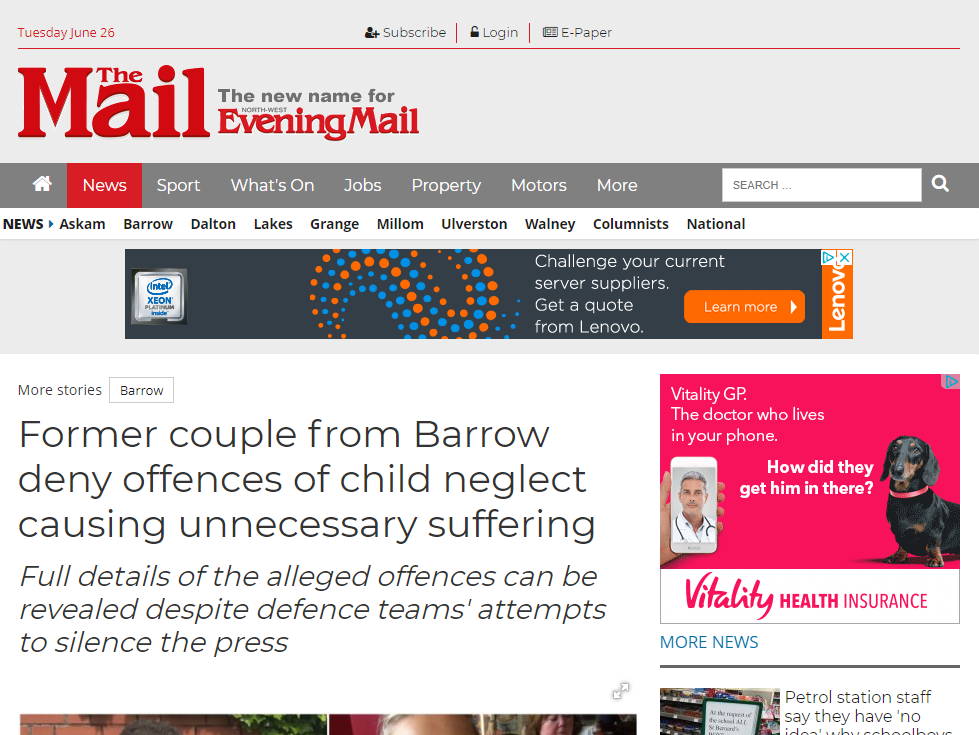
A newspaper was able to name a couple charged with neglecting two young children after a reporter persuaded a District Judge that giving the youngsters anonymity would be against the open justice principle because it would mean the defendants could not be named.
Amy Fenton, a journalist with Newsquest’s Barrow-based Mail, mounted her challenge when both prosecution and defence lawyers asked District Judge Gerald Chalk, sitting at South Cumbria Magistrates Court, to make an anonymity order for the children under section 45 of the Youth Justice and Criminal Evidence Act 1999.
The request was made by prosecutor Peter Kelly, solicitor Maureen Fawcett, defending Rebecca O’Brien, 25, and solicitor Mike Graham, representing co-defendant Nathan Moscrop, 27.
The pair – who have now split up – are accused of having neglected and caused suffering to a six-month-old baby girl and a one-year-old boy between March 2015 and March 2016.
They deny the charges and are due to face trial at Preston Crown Court next month.
Fenton said she pointed out to the court, at a hearing on 22 June, that making the order would mean that neither defendant would be identifiable, which would place a substantial restriction on the media’s ability to report the case.
It was also for the applicants to persuade the court that an order was necessary, she argued.
“In my argument I made repeated references to the overriding principle of open justice, and the open reporting of crime, and reminded the court that guidance from the Judicial College states a court ‘may not make a substantial and unreasonable restriction if an order prevents an adult defendant from being identified’.”
She used both McNae’s Essential Law for Journalists and the Judicial College’s guidance, entitled Reporting Restrictions in the Criminal Courts, both of which were “incredibly useful”, Fenton said.
She told the court she had no intention of naming either of the children but that her intention was to ensure that the defendants could be named.
District Judge Chalk rejected the application for the anonymity order, saying: “I don’t believe any press coverage is likely to cause any detriment to the two children involved.”
Email pged@pressgazette.co.uk to point out mistakes, provide story tips or send in a letter for publication on our "Letters Page" blog






